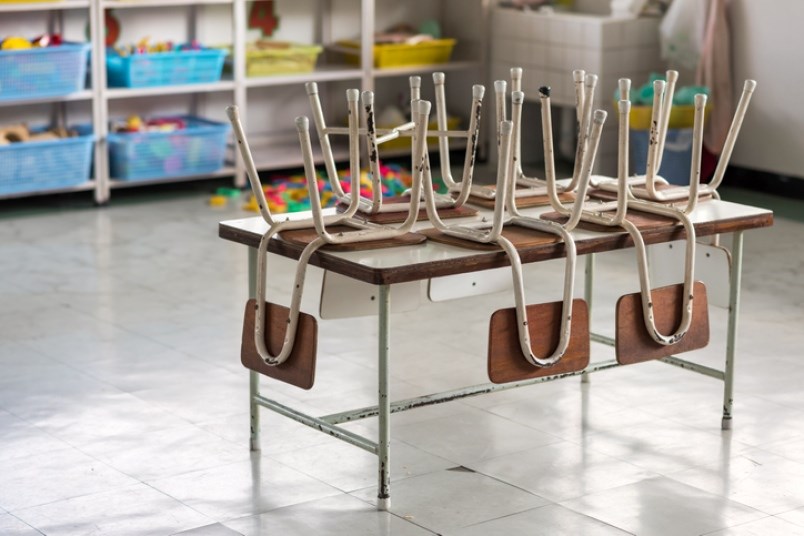York Communities for Public Education parent co-chair Sandra Huh said she is not ready to send her son back to in-person school on Monday.
The province announced plans to go ahead with reopening schools Jan. 17, supported by public health. But parents and educators are questioning how safe it is and whether vaccinations have progressed enough.
Huh said her son is one of the few children aged five to 11 to have received two doses in York Region. But she said she wants to wait for the two weeks required for a second dose to take full effect.
“I want my child in person (learning) for sure. It does help his mental health. However, he’s also feeling anxious. He says, 'Mo mmy, I’m scared to go back, I don’t want to get sick,'" she said. “What makes Monday different from two weeks ago?”
The province has said it is taking measures to keep schools safer come Monday, such as school-based vaccination clinics, providing two rapid antigen tests for students, and deploying N95 masks for staff and three-ply masks for students.
“We are meeting the unique challenges presented by the omicron variant head-on as we do everything we can to support in-person learning,” Minister of Education Stephen Lecce said.
But the province is also changing how school COVID-19 cases are reported, citing the wide transmission of the omicron variant has made it unfeasible to report and track cases. As opposed to parents being notified of a case within their child's class, notification will now only go out upon an absenteeism rate of greater than 30 per cent.
“That to me is frankly just irresponsible. Parents want to know what the health of their children are,” she said.
Some are trying to fill that gap. Ontario biostatistician Ryan Imgrund has released a crowdsourced reporting tool with SRI Canada to map out symptomatic child rates in Ontario based on postal code, giving parents an idea of how symptomatic cases in the area compare to surrounding ones.
His website also features a risk analysis tool to gauge likelihood of catching COVID based on gathering size, such as classrooms.
"It's got really, really interesting (regarding) interpretations of the data that is out there," Imgrund said. "It accounts for the fact the government is not releasing everything that it should."
York Region medical officer of the health Dr. Barry Pakes has voiced support for the return to schools.
“Schools do need to be open for mental health and physical health,” Pakes told regional council Jan. 13. “It is low risk, but it isn’t a risk-free decision.”
But it is not a universally agreed decision. York University's distinguished research professor and modelling expert Jianhong Wu said he is in a minority opinion but believes waiting one or two weeks could make a positive difference given the peak of this pandemic wave is imminent.
“There’s good reason with considering the mental health, but the longer-term, we may end up paying back or paying the price," he said.
Another concern is the youngest students, age four in junior kindergarten, who are not eligible to get a vaccine. Newmarket parent Gerry Frenette said he had hoped eligibility would have expanded to them by now.
“I do know I would feel much more comfortable with my four-year-old being in (junior kindergarten) if he had the opportunity to be vaccinated," he said.
But other local parents are happier about schools reopening.
"At this point in the pandemic, the kids’ mental health needs to take priority," Newmarket parent Alexandra Gordea said. "My six-year-old should not be stressed or anxious because of the virtual school pressure."
However, Huh said has spoken with many parents and there is a split on comfort levels with the return to school.
"My kids will not be returning until they are fully vaccinated," one parent said on her group's Facebook page.
Huh added that she does not want her child catching COVID-19 in school to be inevitable.
“That’s not good enough for me."
